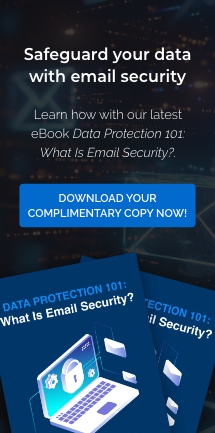SMBs are steadily transitioning from traditional phone services to VoIP solutions for team collaboration. Since VoIP threats don’t make headlines as often as cyberthreats like ransomware and phishing, not everyone knows how to combat them. Here are five tips to secure your company’s internet-based communication devices and services.
Since the majority of VoIP services involve live communications, people might think that it’s safer than stored data, which can be stolen at any time. What companies don’t realize is that valuable information moves across VoIP networks the same way sensitive documents are shared via email. In some cases, internet-based calls are more vulnerable to fraud, identity theft, eavesdropping, intentional disruption of service, and even financial loss.
24/7 monitoring
VoIP security breaches usually take place outside operating hours. Attackers make phone calls using private accounts or access call records with confidential information on the sly. Contracting outsourced IT vendors to monitor network traffic for any abnormalities is the best way to avoid these security breaches.
VoIP firewalls
Firewalls specifically designed for IP-based telephony curb the types of traffic that are allowed into your network. They ensure that every connection is properly terminated at the end of a session and identify suspicious calling patterns. Virtually every VoIP vendor provides these protocols, but you should always consult with your IT services provider as to how these protocols will be managed within your organization.
Encryption tools
Due to lack of encryption, VoIP systems can be easily broken into by even inexperienced hackers, who can download and deploy tools to eavesdrop or intercept your calls. Some services claim to have built-in encryption, but companies still need to be vigilant and investigate how effective they are.
Using encryption ensures that even if hackers successfully download individual audio or video, they still can’t decode the file unless they have a separate decryption key.
Virtual private network
Virtual private networks or VPNs create a secure connection between two points, as if they are occupying the same closed network. It’s like building a secret tunnel between you and the call receiver. Aside from encryption, establishing a VPN can help overcome complications involving Session Initiation Protocol trunking, a recommended VoIP feature.
Password protection
Using passwords to authenticate your access to private information is not as secure as it once was. Hackers can easily find or guess a password and use it for cyberattacks. This is why protecting the passwords themselves is a great layer of protection against threats.
Employees should be instructed never to give any compromising information during a VoIP call, as eavesdropping is one of the easiest and most common cyberattacks against VoIP networks.
VoIP is as important as any of your other network security considerations. It requires a unique combination of protection measures, and we’d love to give you advice on these. Give us a call today to get started.

